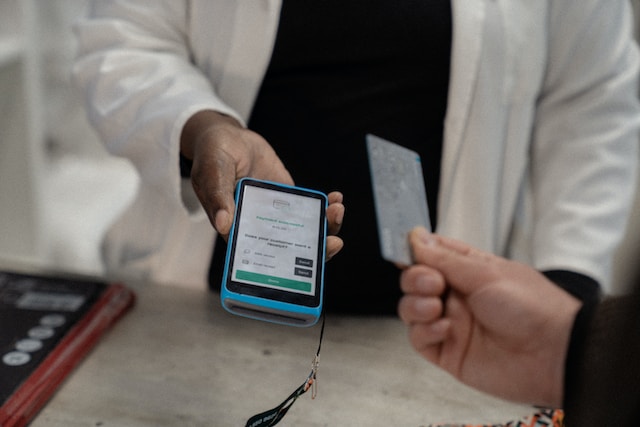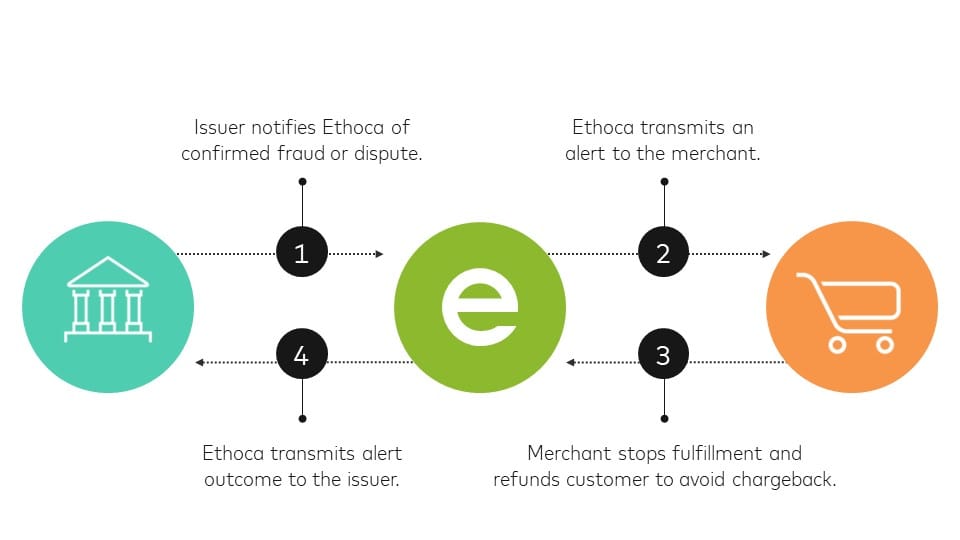
In recent years, the demand for recurring payments has been on the rise in Brazil. As businesses and consumers alike seek convenience and flexibility in their transactions, understanding and implementing recurring payments has become essential in the Brazilian market.
This blog post aims to provide a comprehensive guide to understanding and implementing recurring payments in Brazil. We will explore the importance of recurring payments, the popular payment methods in the country, and the regulatory landscape that businesses must navigate.
Furthermore, we will delve into the process of setting up recurring payments, including choosing the right billing platform, integrating with Brazilian payment gateways, and structuring payment plans.
Managing and optimizing recurring payments is also crucial for business success. We will discuss strategies for monitoring payment performance, handling failed payments, and optimizing for customer retention.
To provide real-world examples, we will showcase case studies of businesses that have successfully implemented recurring payments in Brazil, highlighting their strategies and the benefits they have reaped.
In conclusion, we will explore the future of recurring payments in Brazil, examining the potential for growth and innovation in the market. Whether you are a business owner, entrepreneur, or payment professional, this blog post will equip you with the knowledge and insights needed to navigate the world of recurring payments in Brazil. Stay tuned for the upcoming sections as we dive into the intricacies of this vital payment method.
Introduction: The Importance of Recurring Payments in Brazil
Recurring payments play a crucial role in the Brazilian market, offering numerous benefits to both businesses and consumers. In this section, we will explore why recurring payments are so important in Brazil and how they have transformed the way transactions are conducted.
1.1 Advantages of Recurring Payments
Recurring payments provide a multitude of advantages for businesses operating in Brazil. These advantages include:
1.1.1 Improved Cash Flow Management
By implementing recurring payments, businesses can ensure a steady and predictable cash flow. Instead of relying on one-time transactions, recurring payments allow for regular, scheduled payments, which can significantly enhance financial planning and stability.
1.1.2 Enhanced Customer Convenience
Recurring payments offer convenience to customers by automating the payment process. Subscribers can avoid the hassle of manually making payments each time, ensuring a seamless and hassle-free experience. This convenience can lead to increased customer satisfaction and loyalty.
1.1.3 Increased Customer Retention
With recurring payments, businesses can foster long-term relationships with customers. By offering subscription-based services or recurring billing options, businesses can keep customers engaged and committed over an extended period. This can result in higher customer retention rates and a more sustainable revenue stream.
1.2 Transforming the Payment Landscape in Brazil
The adoption of recurring payments has reshaped the payment landscape in Brazil. Here are some notable ways in which recurring payments have made an impact:
1.2.1 E-commerce and Subscription-Based Businesses
Recurring payments have revolutionized the e-commerce industry in Brazil. Online businesses, particularly subscription-based services, have thrived by leveraging the recurring payment model. This has allowed them to offer flexible payment options, attract more customers, and ensure a steady income stream.
1.2.2 Financial Services and Utilities
Recurring payments have also transformed the way financial services and utility companies operate in Brazil. By enabling customers to pay for services such as insurance premiums, loan repayments, and utility bills through automated recurring payments, these industries have streamlined their operations and improved customer experience.
1.2.3 Membership and Loyalty Programs
Membership and loyalty programs have become increasingly popular in Brazil, and recurring payments have played a pivotal role in their success. By offering subscription-based loyalty programs, businesses can provide exclusive benefits to their customers while ensuring consistent revenue generation.
1.3 Market Opportunities and Competitive Advantage
Implementing recurring payments can provide businesses in Brazil with significant market opportunities and a competitive edge. By embracing this payment method, businesses can:
1.3.1 Tap into the Growing Subscription Economy
The subscription economy is thriving in Brazil, with consumers increasingly opting for subscription-based services. By incorporating recurring payments into their business models, companies can capitalize on this trend and attract a larger customer base.
1.3.2 Differentiate from Competitors
Offering recurring payment options can set businesses apart from their competitors. By providing seamless and convenient payment experiences, companies can enhance their brand image and attract customers who value convenience and flexibility.
1.3.3 Unlock Revenue Potential
Recurring payments offer businesses the potential to unlock additional revenue streams. By leveraging recurring billing models, companies can establish predictable revenue streams and potentially increase their overall profitability.
Understanding the importance of recurring payments in Brazil is crucial for businesses looking to thrive in a rapidly evolving market. In the next sections, we will delve deeper into the Brazilian payment landscape, the popular payment methods, and the regulatory considerations businesses must keep in mind when implementing recurring payments.
Understanding the Brazilian Payment Market
To successfully implement recurring payments in Brazil, it is essential to have a comprehensive understanding of the Brazilian payment market. In this section, we will explore the key aspects of the market, including the role of recurring payments, popular payment methods, and the regulatory landscape.
1.1 The Role of Recurring Payments in Brazil
Recurring payments have gained significant traction in Brazil, playing a crucial role in various industries. Here, we will discuss the specific functions and benefits of recurring payments in the Brazilian market.
1.1.1 Subscription-Based Business Models
Subscription-based business models have experienced rapid growth in Brazil, with recurring payments at the core of their operations. Companies offering services such as streaming platforms, software-as-a-service (SaaS) solutions, and online memberships rely on recurring payments to ensure a steady revenue stream and maintain customer loyalty.
1.1.2 Regular Services and Utilities
Recurring payments also play a crucial role in facilitating payments for regular services and utilities in Brazil. These include monthly bills for electricity, water, telecommunications, and other essential services. By automating recurring payments, businesses in these sectors can streamline their operations and improve customer convenience.
1.1.3 Installment Payments
In Brazil, installment payments are a popular method for purchasing high-value goods and services. Recurring payments enable consumers to divide their payments into manageable installments over a specified period, making expensive purchases more affordable. Businesses can leverage recurring payments to offer installment plans, attracting a larger customer base and boosting sales.
1.2 Popular Payment Methods in Brazil
Brazil has a diverse range of payment methods, each with its unique characteristics and popularity among consumers. Understanding these payment methods is vital when implementing recurring payments in the country.
1.2.1 Credit Cards
Credit cards are widely used in Brazil for both online and offline transactions. They offer convenience, security, and the ability to make recurring payments. Businesses that incorporate recurring payments often rely on credit cards as a primary payment method due to their widespread acceptance and familiarity among consumers.
1.2.2 Boleto Bancário
Boleto Bancário is a popular payment method in Brazil, especially for customers who prefer to pay in cash or do not have access to credit cards. It is essentially a payment slip that can be printed or received electronically, allowing customers to make payments at banks, lottery agencies, or other authorized locations. Integrating boleto bancário into recurring payment systems can help businesses cater to a broader customer base.
1.2.3 Debit Cards
Debit cards are widely used in Brazil for both online and offline transactions. They offer a convenient and secure way for consumers to make payments directly from their bank accounts. Including debit card options in recurring payment systems can provide customers with more flexibility and accessibility.
1.2.4 Digital Wallets
Digital wallets, such as PayPal, Mercado Pago, and PagSeguro, have gained popularity in Brazil. These wallets allow users to link their bank accounts or credit cards to make payments digitally. Integrating digital wallets into recurring payment systems can cater to tech-savvy consumers who prefer a seamless and mobile-friendly payment experience.
1.3 Regulations and Compliance in the Brazilian Payment Market
The Brazilian payment market is subject to various regulations and compliance requirements that businesses must adhere to when implementing recurring payments. Understanding these regulations is crucial to ensure legal compliance and build trust with customers.
1.3.1 Central Bank of Brazil (Banco Central do Brasil)
The Central Bank of Brazil is responsible for overseeing and regulating the Brazilian payment market. It establishes rules and guidelines to ensure the security, efficiency, and stability of payment systems. Businesses must comply with the regulations set forth by the Central Bank to operate legally and maintain consumer trust.
1.3.2 General Data Protection Law (LGPD)
The General Data Protection Law (LGPD) in Brazil governs the collection, use, and protection of personal data. Businesses implementing recurring payments must ensure compliance with the LGPD to safeguard customer information and maintain transparency in data handling practices.
1.3.3 Payment Card Industry Data Security Standard (PCI DSS)
The Payment Card Industry Data Security Standard (PCI DSS) is a global security standard that applies to businesses that handle credit card information. To protect sensitive payment data, businesses must comply with PCI DSS requirements when processing recurring payments with credit cards.
Understanding the Brazilian payment market, including the role of recurring payments, popular payment methods, and regulatory considerations, is essential for successful implementation. In the next section, we will explore the process of setting up recurring payments in Brazil, including choosing the right billing platform and integrating with Brazilian payment gateways.

Setting Up Recurring Payments in Brazil
Setting up recurring payments in Brazil requires careful planning and implementation. In this section, we will guide you through the process of establishing recurring payments, including selecting the right billing platform, integrating with Brazilian payment gateways, and structuring payment plans.
1.1 Choosing a Recurring Billing Platform
Selecting the right recurring billing platform is crucial for the smooth operation of your recurring payment system. Consider the following factors when choosing a billing platform:
1.1.1 Features and Functionality
Evaluate the features and functionality offered by billing platforms. Look for key capabilities such as automated billing, flexible payment plans, customer management, and reporting tools. Ensure that the platform aligns with your business needs and supports the specific requirements of the Brazilian market.
1.1.2 Integration Options
Check if the billing platform integrates seamlessly with Brazilian payment gateways and other essential systems such as customer relationship management (CRM) software and accounting platforms. Integration capabilities are crucial for streamlining operations and maintaining data accuracy.
1.1.3 Security and Compliance
Prioritize security and compliance when selecting a billing platform. Ensure that the platform adheres to industry-standard security measures and compliance requirements, such as PCI DSS. This is particularly important when handling sensitive customer payment data.
1.2 Integration with Brazilian Payment Gateways
Integrating with Brazilian payment gateways is essential for processing recurring payments smoothly and securely. Consider the following steps when integrating with payment gateways:
1.2.1 Research Available Payment Gateways
Research and identify the payment gateways available in Brazil. Some popular payment gateways in the Brazilian market include PagSeguro, Mercado Pago, Cielo, and Rede. Evaluate their features, pricing, and integration options to determine the most suitable gateway for your business.
1.2.2 API Integration
Work with your chosen billing platform to integrate with the selected payment gateway using their application programming interfaces (APIs). APIs allow seamless communication between the billing platform and the payment gateway, facilitating the processing of recurring payments.
1.2.3 Test Transactions
Conduct thorough testing of the integration to ensure that recurring payments are processed accurately. Test various scenarios, such as successful payments, failed payments, and subscription cancellations, to identify and resolve any potential issues before going live.
1.3 Setting Up Payment Plans
Structuring payment plans is a crucial aspect of implementing recurring payments. Consider the following factors when setting up payment plans:
1.3.1 Frequency and Interval
Determine the frequency and interval of recurring payments based on your business model and customer preferences. Common options include monthly, quarterly, or annual billing cycles. Assess the viability of offering flexible intervals to cater to different customer needs.
1.3.2 Pricing and Discounts
Define the pricing structure for your recurring payment plans. Consider offering discounts or incentives for long-term commitments or annual subscriptions to encourage customer retention. Ensure that the pricing aligns with the value provided by your products or services.
1.3.3 Communication and Customer Notifications
Establish clear communication channels to notify customers about upcoming payments, failed transactions, or changes to payment plans. Utilize automated email notifications or SMS alerts to keep customers informed and address any payment-related queries promptly.
By carefully selecting a billing platform, integrating with Brazilian payment gateways, and structuring payment plans, you can establish a robust recurring payment system in Brazil. In the next section, we will delve into managing and optimizing your recurring payments, including monitoring payment performance, handling failed payments, and optimizing for customer retention.
Managing and Optimizing Your Recurring Payments
Managing and optimizing recurring payments is crucial for ensuring the success and profitability of your business in Brazil. In this section, we will explore strategies for effectively managing and optimizing your recurring payment system. We will cover topics such as monitoring payment performance, dealing with failed payments, and optimizing for customer retention.
2.1 Monitoring Recurring Payment Performance
Monitoring the performance of your recurring payment system is essential to identify any issues or areas for improvement. Consider the following strategies for effective performance monitoring:
2.1.1 Track Key Metrics
Identify and track key metrics related to your recurring payment system. This may include metrics such as monthly recurring revenue (MRR), churn rate, customer lifetime value (CLTV), and payment success rates. By monitoring these metrics, you can gain valuable insights into the health of your recurring payment system and make data-driven decisions.
2.1.2 Regular Reporting and Analysis
Generate regular reports to analyze the performance of your recurring payments. These reports should provide a comprehensive overview of key metrics, trends, and patterns. Use this analysis to identify any payment-related issues, potential bottlenecks, or areas for improvement.
2.1.3 Customer Feedback and Surveys
Seek feedback from your customers regarding their recurring payment experience. Conduct surveys or gather feedback through customer support channels to understand their satisfaction levels, pain points, and suggestions for improvement. This feedback can help you identify and address any issues promptly.
2.2 Dealing with Failed Payments
Failed payments can have a significant impact on the performance and revenue of your recurring payment system. Implement effective strategies to mitigate and manage failed payments:
2.2.1 Automated Retry Mechanisms
Implement automated retry mechanisms to handle failed payment attempts. Configure your billing platform to automatically retry failed payments at specific intervals. This can help capture missed payments and reduce the churn rate.
2.2.2 Effective Communication
Maintain open and transparent communication with customers when their payments fail. Send automated notifications promptly, informing them of the failed payment and providing instructions on how to update their payment information. Prompt communication can help resolve payment issues and retain customers.
2.2.3 Grace Periods and Payment Recovery
Consider implementing grace periods to allow customers to update their payment details after a failed payment. During this period, restrict access to premium features or services to incentivize customers to update their payment information. Provide clear instructions and support for customers to recover their recurring payments seamlessly.
2.3 Optimizing for Customer Retention
Customer retention is vital for the long-term success of your recurring payment system. Implement strategies to optimize customer retention and reduce churn:
2.3.1 Offer Flexible Payment Options
Provide customers with flexible payment options, such as different billing cycles or the ability to switch between plans. This flexibility can accommodate various customer preferences and financial situations, reducing the likelihood of cancellation.
2.3.2 Personalized Customer Experience
Invest in personalized customer experiences to foster loyalty and retention. Tailor communication, offers, and rewards based on customer preferences and behavior. Leverage customer data to provide personalized recommendations or exclusive incentives, strengthening the relationship with your customers.
2.3.3 Proactive Customer Support
Maintain proactive customer support to address any payment-related queries or issues promptly. Offer multiple channels of support, such as email, live chat, or phone, to provide timely assistance. Promptly resolve customer concerns, as a positive customer support experience can lead to increased customer satisfaction and retention.
By effectively managing and optimizing your recurring payments, you can enhance the performance, profitability, and customer satisfaction of your business in Brazil. In the next section, we will explore success stories and case studies of businesses that have implemented recurring payments successfully in the Brazilian market.
Case Studies: Success Stories of Recurring Payments in Brazil
In this section, we will explore real-life case studies of businesses that have successfully implemented recurring payments in Brazil. These success stories will provide valuable insights into the strategies, challenges, and benefits associated with recurring payments in the Brazilian market.
3.1 Case Study 1: Company X - Subscription-based Service Provider
Background
Company X is a popular online streaming platform that offers a wide range of movies and TV shows through a subscription-based model. They implemented recurring payments to streamline their billing process and enhance customer convenience.
Strategy
- Company X integrated with a leading Brazilian payment gateway to process recurring payments seamlessly.
- They offered multiple subscription plans with flexible billing cycles to cater to different customer preferences.
- Company X implemented automated email notifications to remind customers of upcoming payments and provide support for any payment-related issues.
Results and Benefits
- Recurring payments helped Company X achieve a steady and predictable revenue stream.
- Customer retention improved significantly as subscribers found the automated payment process convenient and hassle-free.
- The integration with a reputable payment gateway ensured secure and reliable payment transactions, boosting customer trust and satisfaction.
3.2 Case Study 2: Company Y - Utility Service Provider
Background
Company Y is a utility service provider that offers electricity, water, and gas services to residential and commercial customers in Brazil. They adopted recurring payments to simplify the payment process for their customers.
Strategy
- Company Y integrated their billing system with a popular Brazilian payment gateway to process recurring payments.
- They implemented automated billing for monthly utility bills, ensuring timely payments and reducing manual administrative work.
- Company Y provided a self-service portal where customers could manage their payment preferences, update their billing information, and view payment history.
Results and Benefits
- Recurring payments improved cash flow for Company Y by reducing late payments and ensuring consistent revenue.
- Customer satisfaction increased as customers appreciated the convenience of automated billing and self-service options.
- Company Y experienced a significant reduction in manual administrative tasks, allowing their staff to focus on other core business activities.
3.3 Case Study 3: Company Z - E-commerce Retailer
Background
Company Z is a successful e-commerce retailer in Brazil, offering a wide range of products across various categories. They implemented recurring payments to provide installment options for their customers.
Strategy
- Company Z integrated with a Brazilian payment gateway that supported recurring payments and installment plans.
- They offered customers the option to pay for their purchases in convenient monthly installments.
- Company Z implemented a customer-friendly interface that clearly displayed installment details and payment schedules during the checkout process.
Results and Benefits
- Recurring payments and installment options significantly increased customer affordability, leading to higher average order values and increased sales.
- Company Z attracted a larger customer base as the installment payment option appealed to a wider range of customers with varying budget constraints.
- The integration with a reliable payment gateway ensured seamless and secure installment payment processing, enhancing customer trust.
These case studies illustrate the successful implementation of recurring payments in various industries in Brazil. By learning from these success stories, businesses can gain valuable insights and strategies to implement recurring payments effectively. In the next section, we will explore the future of recurring payments in Brazil and the potential for further growth and innovation.
Conclusion: The Future of Recurring Payments in Brazil
In conclusion, recurring payments have become increasingly important in the Brazilian market, providing numerous benefits to businesses and consumers alike. As we have explored throughout this blog post, understanding and implementing recurring payments in Brazil requires careful consideration of payment methods, regulatory compliance, and strategic planning.
The future of recurring payments in Brazil looks promising, with continued growth and innovation on the horizon. Here are some key insights and trends to consider:
1. Increasing Adoption and Awareness
The adoption of recurring payments is expected to continue to rise in Brazil as more businesses recognize the value and convenience it offers. With the increasing popularity of subscription-based services, e-commerce, and installment payments, recurring payments will become even more prevalent in the market.
2. Evolving Payment Technologies
Advancements in payment technologies will drive the evolution of recurring payments in Brazil. Mobile payment solutions, digital wallets, and contactless payment options will become more prevalent, offering customers greater flexibility and convenience when making recurring payments.
3. Enhanced Security and Data Protection
As the payment landscape evolves, so does the need for robust security measures and data protection. Businesses will need to stay up-to-date with the latest security standards and compliance requirements to ensure the secure processing of recurring payments and safeguard customer data.
4. Personalization and Customer Experience
The future of recurring payments in Brazil will focus on personalization and enhancing the overall customer experience. Businesses will leverage customer data to deliver personalized offers, tailored payment plans, and seamless payment experiences. This will foster customer loyalty and satisfaction, leading to increased customer retention.
5. Integration with Emerging Technologies
Recurring payments will also integrate with emerging technologies to provide even more convenience and efficiency. Integration with artificial intelligence (AI), machine learning, and automation will streamline payment processes, improve fraud detection, and enhance customer support.
As the Brazilian market continues to embrace recurring payments, businesses must adapt and optimize their strategies to stay competitive. By leveraging the benefits of recurring payments, businesses can improve cash flow, enhance customer satisfaction, and drive long-term growth.
In conclusion, understanding and implementing recurring payments in Brazil requires careful consideration of the payment landscape, regulatory compliance, and customer preferences. By staying informed about market trends and embracing innovation, businesses can position themselves for success in the evolving landscape of recurring payments in Brazil.


